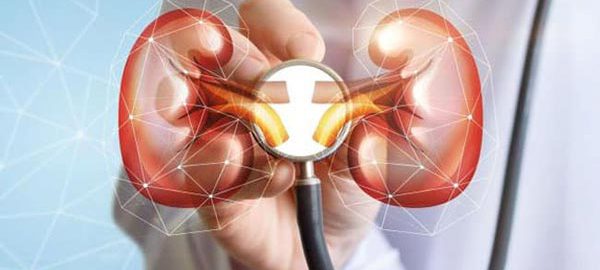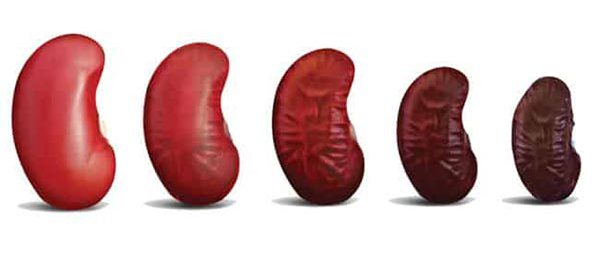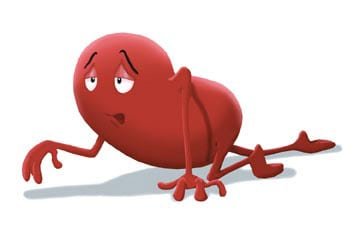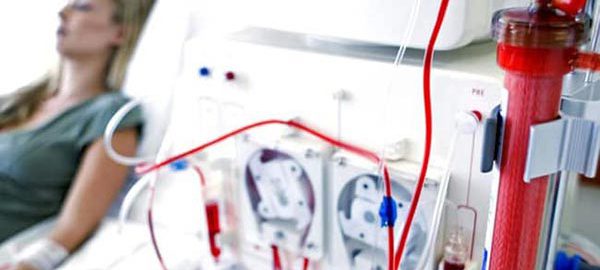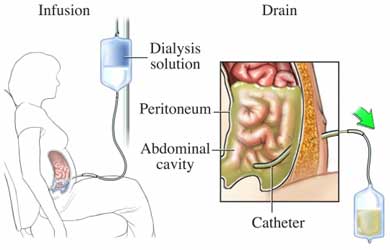Chronic renal failure (CRF) is a disease characterized by the progressive deterioration of renal function which results in the kidney losing the ability to make urine, and in turn removing toxins from the blood, among other functions that are necessary for life.
A patient is considered to have Chronic Renal Insufficiency when he has a glomerular filtration rate lower than 60ml / min / 1.73m2, resulting from structural or functional abnormalities of the kidney, for at least three months.
Among the kidney’s own functions that are altered in renal failure are:
- The acid-base and electrolyte balance, necessary to maintain the pH and the amount of water and salts that the body needs (sodium, potassium, and phosphorus)
- Elimination of toxins.
- Endocrine functions, such as the production of erythropoietin necessary for the production of red blood cells, and avoid anemia.
- Regulation of calcium metabolism (essential for the proper function of bones)
These are some of the substances that accumulate in the blood product of cell metabolism and that in the case of suffering from renal failure are not eliminated properly, and can be harmful when they accumulate in the blood:
- Urea
- Creatinine
- Ureic Nitrogen in Blood (BUN)
- Sodium (present in salt): Favors the retention of liquids
- Potassium (present in fruits, vegetables, and nuts): as a serious consequence among others can produce an irreversible cardiac arrest.
- Phosphorus (present in bread, dairy, and pastries): In excess produces itching and contributes to vascular calcification.
- Excesses of water (come mainly from drinks and meals): Increases blood pressure, and can lead to acute pulmonary edema, which is a serious condition, where the lung cannot exercise its function to oxygenate the blood because occupied by liquid.
Causes of the CRF
Causes that can cause Chronic Renal Insufficiency:
- Infections of either the urinary, kidney or systemic pathways that affect the kidney (for example pyelonephritis)
- Medications that affect the kidney (for example chronic interstitial nephritis, caused mostly by non-steroidal anti-inflammatory drugs, such as ibuprofen and diclofenac and some antibiotics, among other medicines)
- Injuries, tumors
- Acquired or hereditary renal diseases (for example, glomerulonephritis or polycystic kidney disease in more than 20%)
- Diabetes mellitus (more than 20%)
- Hypertension
- Atherosclerosis (fatty deposits, such as cholesterol, inside the arteries, in more than 15%)
- Systemic hereditary diseases with kidney involvement
- Urinary tract stones
Symptoms of CRF
The symptoms of advanced chronic renal failure (CRF) are mainly associated with the retention of urea and electrolytes such as phosphorus and potassium, and fluid retention, with edema in the legs (swollen legs) and shortness of breath (edema) in lung; also when the levels of urea are very high the following signs and symptoms may appear:
- Tiredness
- Nausea
- Vomiting
- Loss of appetite
- Weight loss
- Headache
- Insomnia
- Numbness or muscle pain in arms and/or legs
- Spiked
- Blurred vision
- Heart problems
- Anemia and malnutrition
- Edema in the eyelids and legs (fluid retention)
- Osteodystrophy (decalcification and fragility of the bones)
- Stomach discomfort (gastritis)
Treatments: hemodialysis and peritoneal dialysis
Techniques of renal replacement therapy: Hemodialysis or Peritoneal Dialysis
Among the techniques of renal replacement therapy, that is to say, those that will supply kidney function, when they present a significant deterioration of between 5-15% of their capacity, it is necessary to choose the technique depending on the characteristics of the patient and the recommendations of your nephrologist in Delhi.
In both cases, once the treatment is started, both hemodialysis and peritoneal dialysis recover the feeling of well-being and improve the functioning of the body’s systems.
Kidney Transplant
Kidney transplant in Delhi is the best renal replacement therapy because it offers the possibility of a better quality of life by restoring all affected functions and eliminates the need for chronic dialysis in Delhi. A transplanted kidney can work well for many years, depending on the general health of the recipient and the characteristics of the donor’s kidney.
In any case, before being a candidate for a kidney transplant recipient, additional tests should be performed to ensure optimal performance, since it requires immunosuppressive drugs, that is, they depress the body’s natural defences and predispose other diseases of an infectious nature, as well as the success of surgery since it does not stop being a surgical intervention with its risks. So not all patients who are suitable for such intervention, should be assessed by a nephrologist in Delhi and the transplant team.

